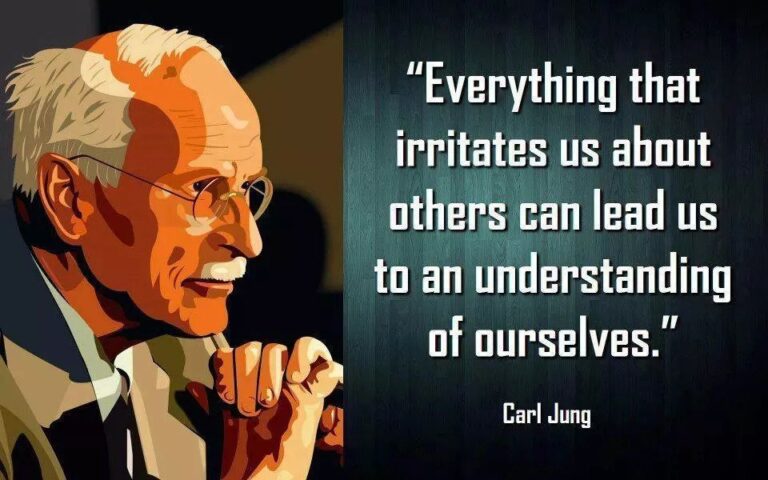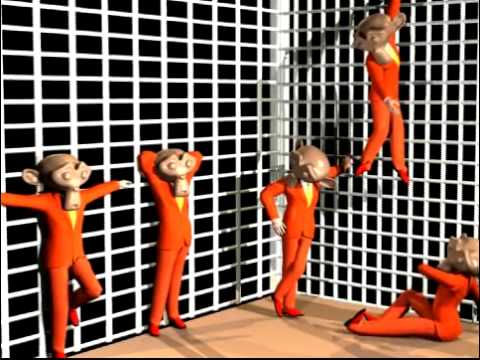“We meet ourselves time and time again in a thousand disguises on the path of life.” ~ Carl Jung
If we take any random person then pick five people in their life and interview them about said person we are bound to hear five different perceptions about them. One person may perceive them as funny, kind and warm-hearted while another person may see them as irresponsible, immature, and unintelligent.
So whose perception is the correct one?
One of the biggest key in the path of self-awareness is the knowledge that our perception of others has nothing to do with them and everything to do with us. We literally concoct our own perception about people that we meet based on our own relationship with ourselves and our own personality traits.
The ego, fearing attention being brought to it, tends to always look outside of itself for someone or something to “blame”, when in fact, it is only recognizing its own traits in other people.
For example, let’s say a person has never experienced the feeling of envy, how could they recognize this trait in another person if they have never experienced it? We can only recognize traits in other people that we also possess or at least have possessed, which means turning our attention outward and blaming or judging others is a pointless endeavor.
When we come to realize that our opinions and judgments of other people have nothing to do with them and everything to do with our own ego, we are then able to use every reaction we have towards others as an opportunity to bring light to an aspect of ourselves that needs healing.
“What angers us in another person is more often than not an unhealed aspect of ourselves. If we had already resolved that particular issue, we would not be irritated by its reflection back to us.” ~ Simon Fuller
 Our reactions to other people are the keys that unlock the forming of an integral and authentic relationship with our self. If we pay close attention to who or what brings about a strong emotional reaction from us, we are able to utilize this to our advantage. Negative reactions indicate either one of two things.
Our reactions to other people are the keys that unlock the forming of an integral and authentic relationship with our self. If we pay close attention to who or what brings about a strong emotional reaction from us, we are able to utilize this to our advantage. Negative reactions indicate either one of two things.
One being that either we are attached to an idea or belief about the way things SHOULD be, or the way someone SHOULD behave which means we are trying to force our own agenda on to other people, when in fact, no one has to behave the way we think they should.
Anytime we hold people to our expectations of them instead of accepting them as they are, we are sitting in resistance of the present moment.
The other thing a negative emotional reaction can indicate is that there is an aspect of our self that we are not wanting to look at, so we are literally finding it in other people as a clue to us that we need to bring awareness to this trait in ourselves.
As Carl Jung said, “When an inner situation is not made conscious, it appears outside as fate.”
We may think that we are victims of circumstances, or that life is just randomly happening to us, when in actuality, our own unconscious is trying to make itself known to us through our external circumstances and through people that we meet.
When we start seeing our own self as the “problem” in every circumstance, we are then able to shed the light of awareness on all parts of our “shadow” self (or the part of our psyche that our ego tries to hide from others and sometimes even our self) which will consequently heal these traits in ourselves.
In order to truly heal a part of our self that we have become conditioned to hide from the world, we must start to practice 100% honesty with ourselves. If we are experiencing anger, we admit and allow our self to experience anger, when we experience fear, we identify the fear and only become aware of it.
It doesn’t mean we have to judge ourselves as good or bad because of the emotions, it only means that we are aware of it, and are then able to send unconditional love to these parts of ourselves.
 Although, it may sound terrible to always see ourselves as the “problem” and always have to turn our hand and point the finger back at ourselves when we so badly want to point it at another person, it actually is the most empowering move we can make. When we see our self as the “problem” we automatically become our own solution.
Although, it may sound terrible to always see ourselves as the “problem” and always have to turn our hand and point the finger back at ourselves when we so badly want to point it at another person, it actually is the most empowering move we can make. When we see our self as the “problem” we automatically become our own solution.
If it is our own perception of the world and our relationship with ourselves that is causing us to see shortcomings in others, we become completely empowered to change the situation by merely healing the parts of ourselves that is identifying and resonating with the same “problem” in them.
When we start to see our self in everyone we meet, we automatically start forming an honest and authentic relationship with ourselves. In this honesty we are able to cultivate our own awareness, and consequently we become calmer, more confident and more accepting of every aspect of ourselves.
And when our relationship with ourselves is loving and accepting, we start not only seeing these same traits in other people, but we realize that things or people that used to bring about a strong negative reaction from us are now met with forgiveness and compassion.
We quite literally change and heal our relationships with others by changing and healing our relationship with ourselves.
Image Source



















